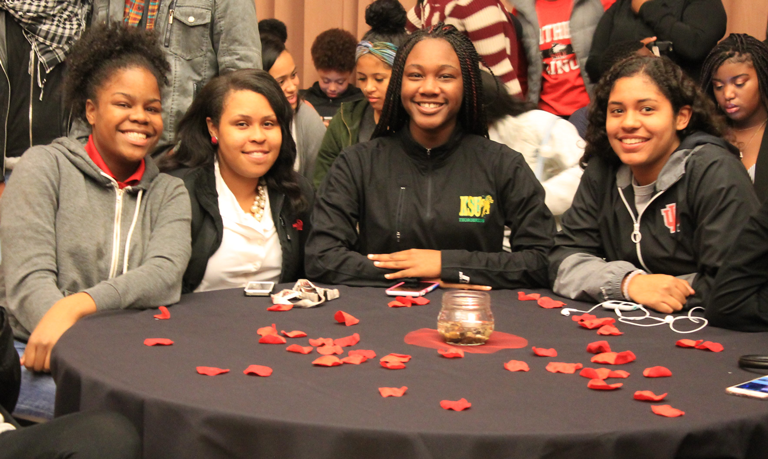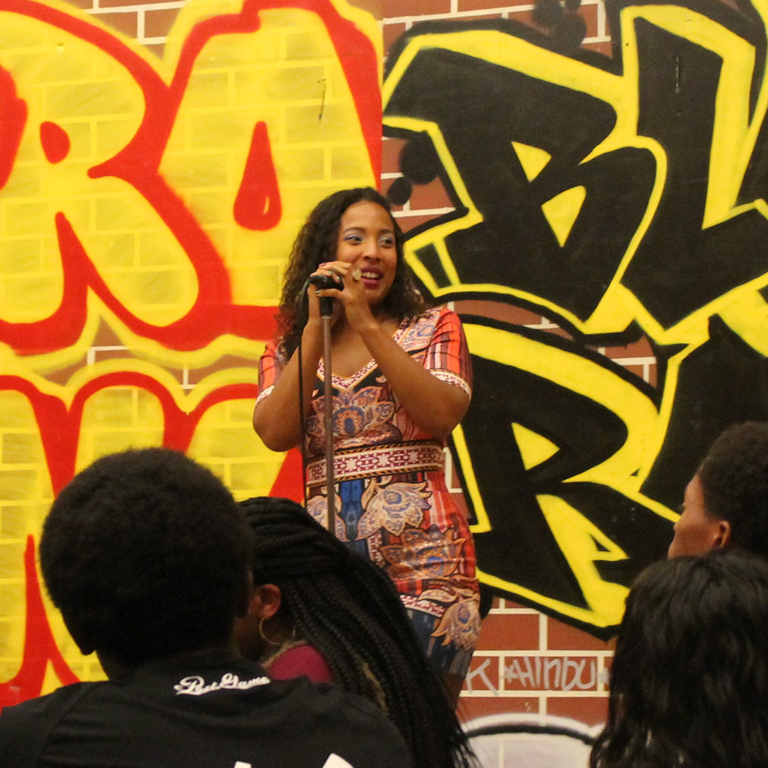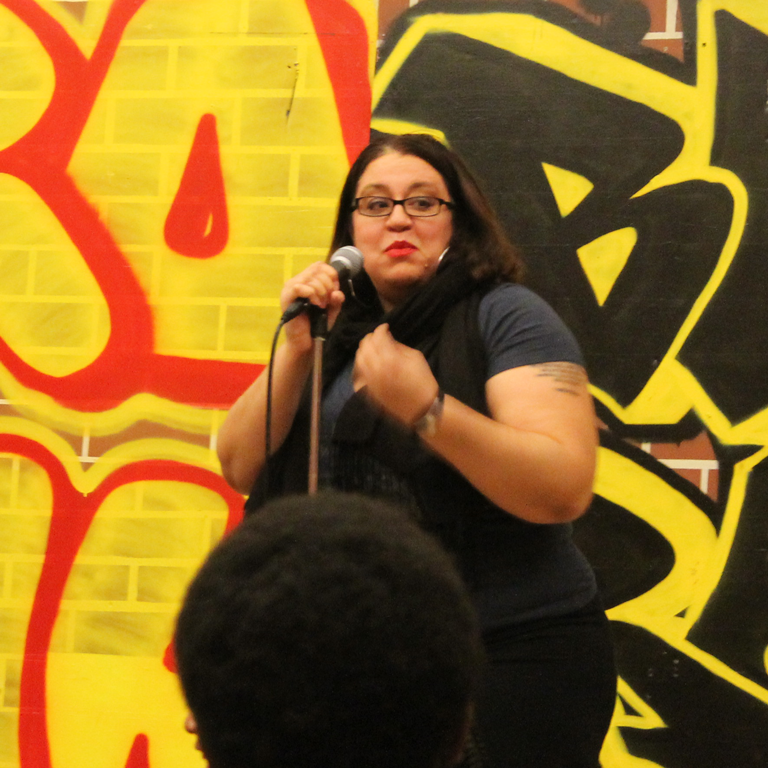Their work centers on special topics that really face this new-age poet. When it comes to poetry, you have some folks that think poetry is supposed to be the Edgar Allan Poes of the world, and people aren’t making new things,” said Johnson. “I was connected with various contributors and an editor of their book, The BreakBeat Poets: New American Poetry in the Age of Hip-Hop, and knew as they are getting the word out about that book, they’re also traveling and doing workshops for schools.”
Betts and Colon, who are both based in Chicago, each read some of their own work, while exhorting the assembled crowd to praise the aspiring poets at the open mic—not that the IU students in attendance needed any encouragement at the high-energy gathering.
“The event was so full of culture and unity, and I haven't seen a Neal Marshall event with that many students from Black IU in a while,” said Arriel Vinson, a senior journalism major from Indianapolis. “It was refreshing, and I was also happy that they brought a group of black poets to IU because it's rare that we get to see that.”
The poetry slam was preceded by an afternoon “Uncovering and Healing” poetry workshop with the aforementioned theme at the NMBCC’s Bridgewaters Lounge. Betts and Colon led the workshop, having participants read and analyze poems such as June Jordan’s “Poem About My Rights,” as well as creating and sharing their own work.
“The workshop was amazing and our guests did a great job. The first poem we wrote was about a moment where someone violated our space or didn’t seek our approval before doing something. In my poem, I specifically talked about my natural hair and how people often touch it without asking—and even if you ask, I’m not a dog,” said Tiffany Campbell, a fifth-year Ph.D. student in the school psychology program in the School of Education. “Other people talked about more intimate and personal things aligned with the theme of people not respecting space."
“People shared different narratives and stories about things they’ve experienced as individuals on this campus, in their lives, and throughout their journey. It was just an enlightening experience to see what different walks of life that different people came from. Then, we wrote a poem about something that we wished we share with someone—something about our story that we didn’t share with somebody, whether it’s ourselves, our parents, someone who hurt us. You learned a lot about each person, and it felt like a very safe space and a family. It was just a great workshop, overall,” continued the Queens, N.Y. native.
“Some of my research and studies are about black girls in schools, their narratives, empowering their voices, and knowing that their stories matter. It’s their journey being heard and feeling supported, that their story matters and there’s somebody who cares about them and wishes them nothing but support and love.”




